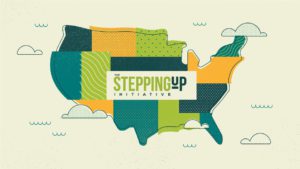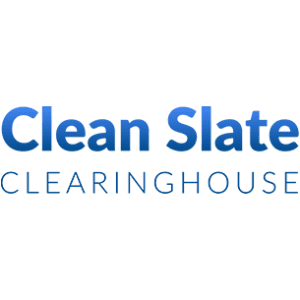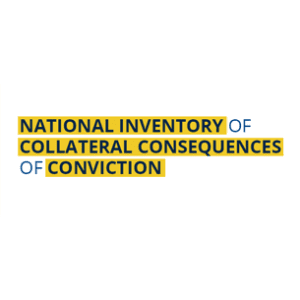Data & Tools
The CSG Justice Center provides interactive tools and data resources to support local policymakers and practitioners who work in criminal justice and related fields.
Assessment Tools Interactive surveys designed to help criminal justice leaders evaluate their local policies and practices.
Stepping Up Self-Assessment Tool
 The Stepping Up County Self-Assessment Tool is designed to assist counties interested in evaluating the status of their current efforts to reduce the prevalence of people with mental illnesses in jails.
The Stepping Up County Self-Assessment Tool is designed to assist counties interested in evaluating the status of their current efforts to reduce the prevalence of people with mental illnesses in jails.
The tool guides counties to determine their implementation progress based to the framework detailed in Reducing the Number of People with Mental Illnesses in Jail: Six Questions County Leaders Need to Ask. Counties that use the tool also gain access to online resources to help advance their work in areas where they have not fully implemented identified best practices.
Police-Mental Health Collaboration Self-Assessment Tool
The Police-Mental Health Collaboration (PMHC) Self-Assessment tool helps law enforcement agencies and their behavioral health partners assess their progress toward implementing high quality partnership-based interventions.
This tool is designed to provide resources to help improve responses to calls for service for people with mental illnesses and/or co-occurring substance use conditions.
View the Police-Mental Health Collaboration Self-Assessment Tool >>
Financial Tools Search for funding opportunities.
Financing the Future of Local Initiatives
Financing the Future of Local Initiatives is a set of tools that helps jurisdictions maximize federal funding and sustain criminal justice-behavioral health efforts.
These tools include a structured planning guide for centering equity as sites identify funding, a database of federal grant opportunities, and examples of how jurisdictions have successfully funded criminal justice and behavioral health initiatives.
Practitioner Tools
Collaborative Comprehensive Case Plans
These resources help programs to better integrate critical behavioral health and criminogenic risk and needs information into comprehensive case plans that actively engage the participant and reflect a balanced and collaborative partnership between criminal justice, behavioral health, and social service systems.
Relapse Prevention Plans
While correctional agencies, probation and parole agencies, and community-based behavioral health treatment providers are working collaboratively to support people returning to the community from prison or jail, they often struggle to account for relapse prevention among people who have an addiction. The development and implementation of relapse prevention plans, as part of a Collaborative Comprehensive Case Plan for reentry, can help to reduce the chances of recidivism and relapse for people who have an addiction, and ensure coordination and linkages among all of the entities involved in their care.
50-State Data and Analysis View and download criminal justice data and information from every state in the U.S.
50-State Report on Public Safety
The 50-State Report on Public Safety is a web-based resource that combines data analyses with practical examples to help policymakers craft impactful strategies to address their state’s specific public safety challenges.
The CSG Justice Center analyzed millions of data points and, with support from the Corrections Leaders Association, interviewed corrections staff in all 50 states to collect new data on each state’s research capacity and supervision practices for use in this first-of-its-kind resource.
Supervision Violations and Their Impact on Incarceration
Since 2018, the CSG Justice Center has analyzed data from corrections departments in all 50 states to better understand the impact of supervision violations on prison populations and the costs associated with it. The third report, Supervision Violations and Their Impact on Incarceration, released in 2024, builds on two previous reports and features national findings and trends, a state dashboard where leaders can view their data individually, and racial disparities analyses by state.
View Supervision Violations and Their Impact on Incarceration.
Cost Calculator
Parole and probation violations have an outsized effect on state prison populations. The Course Corrections Cost Calculator uses data to show how simple changes in probation and parole outcomes can impact a state’s prison population and costs.
See how supervision revocations can impact your state’s budget >>
Services and Opportunities Search for policies and information by local jurisdiction.
Clean Slate Clearinghouse
 The Clean Slate Clearinghouse provides people with criminal records, legal service providers, and state policymakers with information on juvenile and adult criminal record clearance policies in all U.S. states and territories.
The Clean Slate Clearinghouse provides people with criminal records, legal service providers, and state policymakers with information on juvenile and adult criminal record clearance policies in all U.S. states and territories.
View the Clean Slate Clearinghouse >>
National Inventory of Collateral Consequences of Conviction
 Collateral consequences are legal and regulatory sanctions and restrictions that limit or prohibit people who have criminal records from accessing employment, occupational licensing, housing, voting, education, and other opportunities.
Collateral consequences are legal and regulatory sanctions and restrictions that limit or prohibit people who have criminal records from accessing employment, occupational licensing, housing, voting, education, and other opportunities.
The National Inventory of Collateral Consequences of Conviction is a searchable database that tracks the more than 40,000 federal and state policies establishing these consequences.










